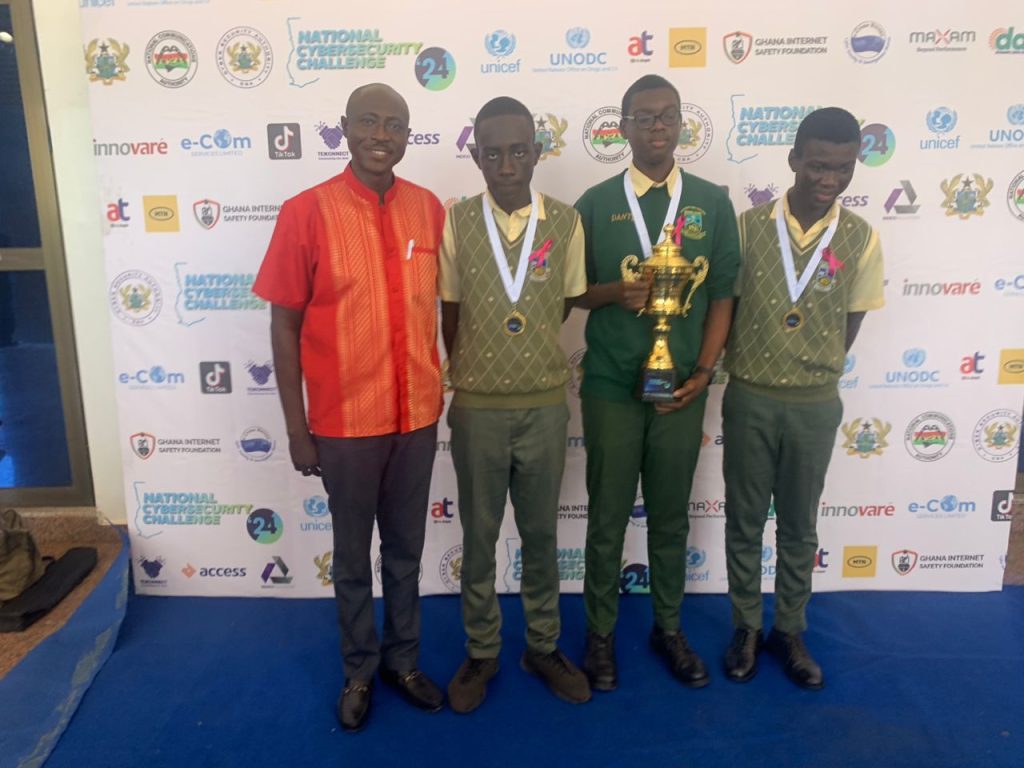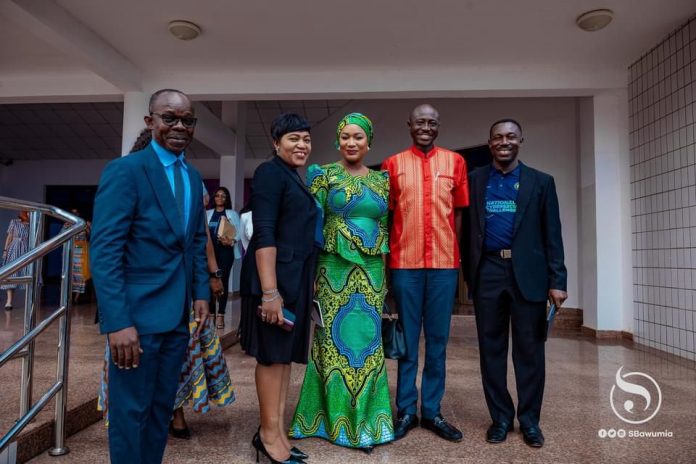The Ghana Internet Safety Foundation (GISF), a key stakeholder in internet safety, has praised the newly launched Ghana Child Online Protection Framework, describing it as a regulatory game-changer and a significant step towards creating a safer online environment for children.
Emmanuel Adinkra, President and Chief Information Security Officer of GISF, expressed confidence in the framework, acknowledging its potential to transform the online space.
He indicated that protecting children online ensures their safety, promotes healthy digital habits, and supports a more positive online experience.
This is what he had to share about the whole project:
“Child online protection is essential because children are increasingly using the internet for education, entertainment, and social interaction, exposing them to potential dangers. Without adequate safeguards, they may encounter risks such as:
- Cyberbullying: Children can be victims of online harassment, which can lead to emotional distress and, in severe cases, mental health issues.
- Inappropriate content: Children may inadvertently come across age-inappropriate material, such as violent, sexual, or otherwise harmful content, which can impact their development.
- Online predators: The anonymity of the internet enables predators to exploit children through grooming or other harmful behaviors.
- Privacy risks: Children often don’t fully understand the consequences of sharing personal information online, making them vulnerable to identity theft, fraud, or exploitation.
- Exposure to misinformation: Without proper guidance, children might access and believe false or misleading information, affecting their education and worldview.”
It would be recalled that on Friday 18th October 2024, Ghana’s Second Lady, Mrs. Samira Bawumia, officially launched the National Child Online Protection Framework in Accra.
The initiative aims to shield children across the country from cybersecurity threats such as cyberbullying and online abuse.

Developed in alignment with the initiatives of the International Telecommunication Union (ITU), WeProtect Global Alliance and UNICEF, the framework is designed to provide a safer and more empowering online experience for Ghanaian children.
The launch took place during the grand finale of the 2023 National Cybersecurity Challenge at the University of Professional Studies, Accra.
The event, themed “Empowering Young Minds: Creating Opportunities, Promoting a Safer Digital Ghana,” saw St. Peters Senior High School crowned as winners.
The competition was organized by the Cyber Security Authority (CSA) in partnership with the Ministry of Communication and Digitalisation, with support from UNICEF, the United Nations Office on Drugs and Crime (UNODC), Ghana Internet Safety Foundation and other key partners.
Mrs. Bawumia emphasized the importance of the framework in light of the increasing cybersecurity risks faced by children globally, including in Ghana.
Citing the Global Online Safety Survey conducted by Microsoft, she highlighted that 49% of teenagers worldwide experience medium to severe negative online encounters such as cyberbullying, harassment, and abuse, underscoring the need for this framework.
“The Child Online Protection Framework provides a comprehensive approach, recognizing the diverse aspects of online safety and addressing the unique challenges our children face in the digital landscape,” Mrs. Bawumia stated. She also called for stronger collaboration between key stakeholders to tackle cybersecurity threats impacting children.
Dr. Albert Antwi-Boasiako, Director General of the CSA, in his address, noted that the adoption of the framework would enhance the authority’s efforts to implement measures that protect Ghanaian children’s digital lives.
He also announced that regulations on child online protection, which support the implementation of Sections 62-66 and other relevant parts of the Cybersecurity Act 2020, would be completed by the end of the year.
Additionally, Dr. Antwi-Boasiako mentioned that plans are underway to establish a National Steering Committee for the National Cybersecurity Challenge, which will provide strategic direction and ensure a more inclusive and structured process for selecting participating senior high schools.
Background
In today’s digital age, ensuring the safety of children online has become a critical concern.
As internet access continues to expand, so do the risks associated with online activities, including exposure to exploitation, abuse, and other harmful content.
In response to these growing threats, the International Telecommunication Union (ITU) launched the Child Online Protection (COP) initiative in 2008, specifically to combat Online Child Sexual Exploitation and Abuse (OCSEA) and other cyber-related offenses targeting children and young people.
The inherently global nature of the internet means that safeguarding children requires coordinated efforts across borders.
This necessitates robust regional and international collaboration to effectively address the complexities of online threats.
As a result, child protection has become a central focus of broader cybersecurity and internet safety strategies worldwide.
At the national level, the development of the National Child Online Protection (COP) framework marks a crucial step forward in protecting children from online dangers.
This framework is designed to align the efforts of all stakeholders including government, industry, civil society, educators, parents, and caregivers towards the shared goal of preventing online abuse and exploitation.
It provides clear guidance on how different sectors can collaborate effectively to create a safer digital environment for children.
As part of its commitment to enhancing cybersecurity and raising public awareness, the Cyber Security Authority will be launching the National COP framework during the National Cybersecurity Awareness Month.
This launch represents a significant milestone in the country’s efforts to safeguard children in the digital world.
By establishing a coordinated approach, the framework ensures that all relevant parties work together to address the unique challenges of child online protection, fostering a secure and supportive online ecosystem for the next generation.
Objective
- Launch the National COP framework as a national guide to provide a national strategic direction on COP and its related issues.








































